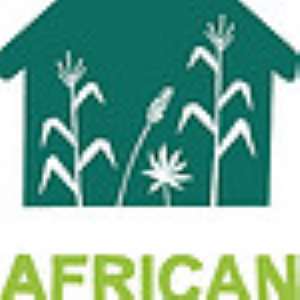
A free, open source online game, African Farmer, has been launched by the Africa-based Future Agricultures Consortium and the University of Sussex, UK.
The game simulates the complex decisions and uncertainties faced by small-scale farmers living in Sub-Saharan Africa. It aims to challenge and engage students, development practitioners, and anyone interested in the challenges faced by farmers in poor countries.
The challenge for players is to manage a farming household in a village, as they make decisions on what to grow, what to buy and how to feed a family – and see the results of those decisions.
African Farmer presents players with a range of challenges, from food prices, diets and work, to more unpredictable chance events like weather and disease.
The game is available in two versions. One is a multi-player game, ideal for classrooms and workplace training where a group is guided through the game by a 'game manager'. The other is a single player game, which can be played by anyone in a standard Internet browser.
Farming in Sub-Saharan Africa is complex and varied. While the African Farmer game does not aim to cover every aspect of rural life, it will encourage players to discuss the issues in an engaging way, alongside more standard textbooks or educational materials. In doing this, it builds on a growing tradition of interactive games used in development studies.
African Farmer develops ideas from the educational board games Green Revolution, developed in the 1970s by Graham Chapman and Liz Dowler; and Africulture, developed in the 1980s by Graham Chapman, Janice Jiggins and Henk de Zeeuw.
African Farmer was created by developers from the Department of Informatics at the University of Sussex and researchers from the Future Agricultures Consortium. It was supported by the UK Department for International Development through a grant to Future Agricultures, with additional support from the UK Economic and Social Research Council through a grant to the STEPS Centre.
The game is open source, so anyone wishing to develop or adapt the game can download the source code on GitHub.




 Akufo-Addo commissions Phase II of Kaleo solar power plant
Akufo-Addo commissions Phase II of Kaleo solar power plant
 NDC panics over Bawumia’s visit to Pope Francis
NDC panics over Bawumia’s visit to Pope Francis
 EC blasts Mahama over “false” claims on recruitment of Returning Officers
EC blasts Mahama over “false” claims on recruitment of Returning Officers
 Lands Minister gives ultimatum to Future Global Resources to revamp Prestea/Bogo...
Lands Minister gives ultimatum to Future Global Resources to revamp Prestea/Bogo...
 Wa Naa appeals to Akufo-Addo to audit state lands in Wa
Wa Naa appeals to Akufo-Addo to audit state lands in Wa
 Prof Opoku-Agyemang misunderstood Bawumia’s ‘driver mate’ analogy – Miracles Abo...
Prof Opoku-Agyemang misunderstood Bawumia’s ‘driver mate’ analogy – Miracles Abo...
 EU confident Ghana will not sign Anti-LGBTQI Bill
EU confident Ghana will not sign Anti-LGBTQI Bill
 Suspend implementation of Planting for Food and Jobs for 2024 - Stakeholders
Suspend implementation of Planting for Food and Jobs for 2024 - Stakeholders
 Tema West Municipal Assembly gets Ghana's First Female Aircraft Marshaller as ne...
Tema West Municipal Assembly gets Ghana's First Female Aircraft Marshaller as ne...
 Dumsor is affecting us double, release timetable – Disability Federation to ECG
Dumsor is affecting us double, release timetable – Disability Federation to ECG
